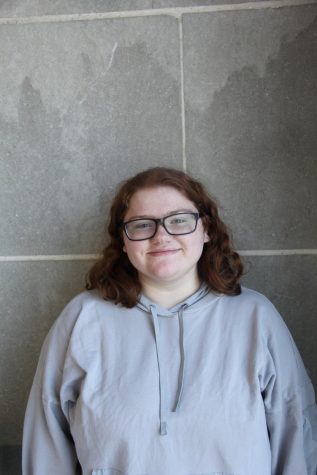Cadaver lab field trip prepares students for careers in healthcare
November 15, 2022
Naperville Central’s Intro to Health Occupations class went on a field trip to the National University of Health Sciences to visit their cadaver lab on Oct. 21. The field trip was meant to highlight the university’s medical programs and give exposure to healthcare careers.
The National University of Health Sciences, located in Lombard, is known for their holistic medicine programs. The field trip is an important experience for students who are interested in going into the medical field, teacher Amanda Haiser said.
“All of my students are interested in some type of health care career,” Haiser said. “I think it’s a great opportunity for them to have an experience that most high schoolers wouldn’t get until, quite frankly, the end of their undergraduate degree or even in medical school.”
The field trip consists of lectures from a professor, covering the anatomy of the body from head to toe. Afterwards, they give the students the opportunity to hold organs and come up body-side. To respect the person who donated their body, the hands, feet and head were covered, because they are the most humanizing parts of the body, Haiser said.
“It really does help to remove some of that emotional hardship that might come with a normal medical school cadaver experience,” Haiser said.
Jessica Diver, a sophomore in the class, aspires to be a mortuary anatomical technician, a career specifically dedicated to dissecting and preserving cadavers. Diver found the field trip to be useful in helping her determine her next steps.
“Oh, I don’t think [the trip itself] really took that much of a toll on me,” Diver said. “To me it was more of ‘this was a moment that would like to determine if I can actually go into the career that I want to go into.’”
Samantha Ruhnke, another student in the class, agreed that the trip gave her some important things to think about.
“I guess the way that I mentally prepared myself was to kind of separate the body from, like, a person,” Ruhnke said.
Ruhnke said the trip was important regardless of whether or not she actually ends up in the mental health industry, because she gained knowledge of how the body works and the impact on mental health.
“I think that the feedback was the most positive I’ve had in a while, probably because students haven’t been able to have those hands-on experiences in so long,” Haiser said.
Both girls said that they would recommend anyone interested in going into the medical field to take this class.
“Do it. You might have nervousness about it at first, so any apprehension, but it really is the best experience you can get, firsthand experience around a human body if you’re planning on going into the medical field,” Diver said.







